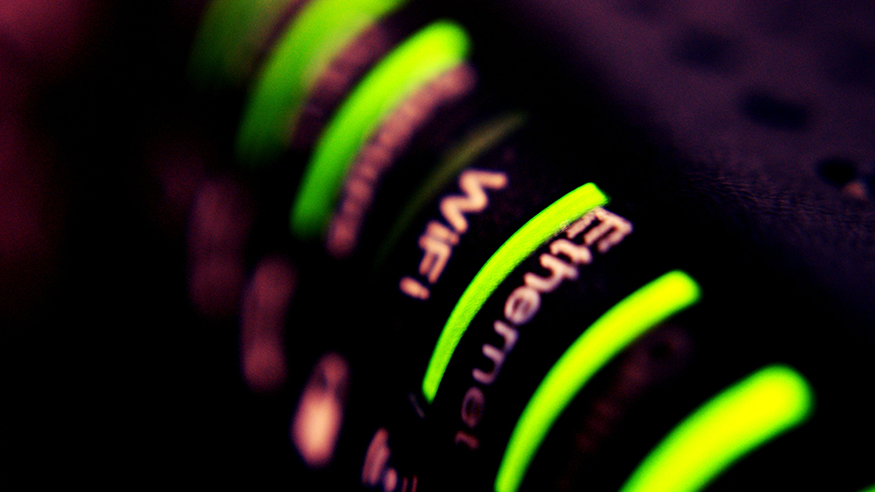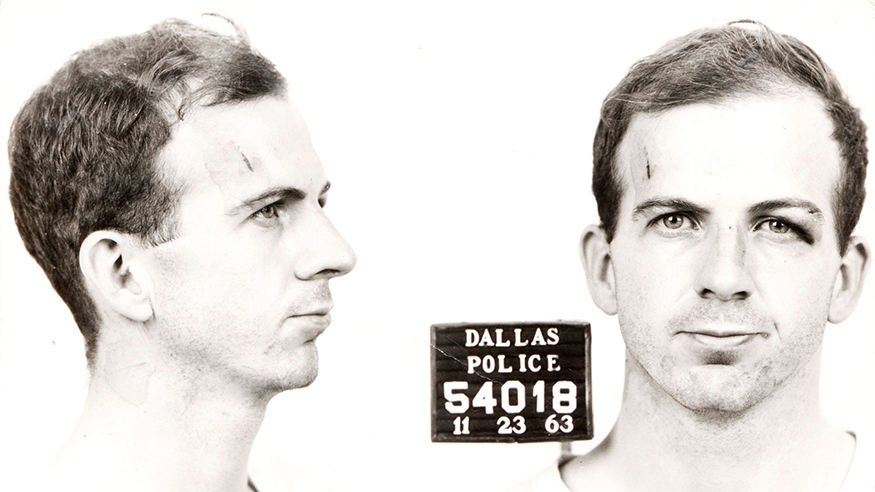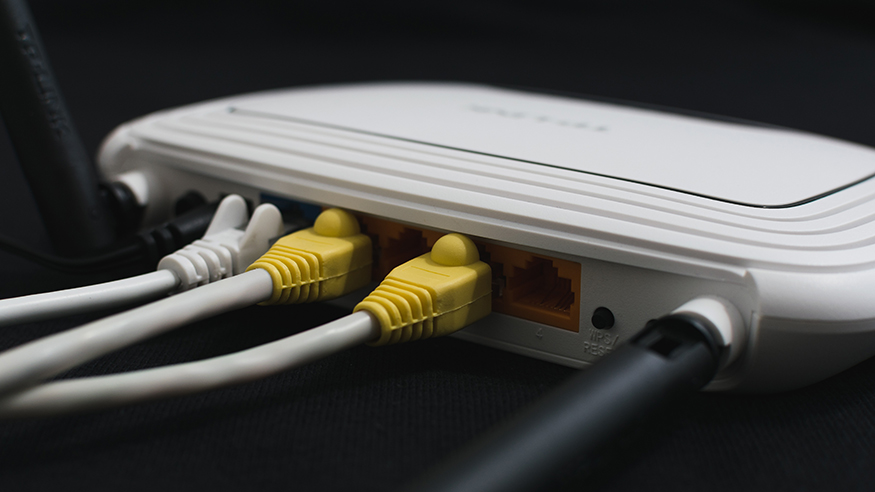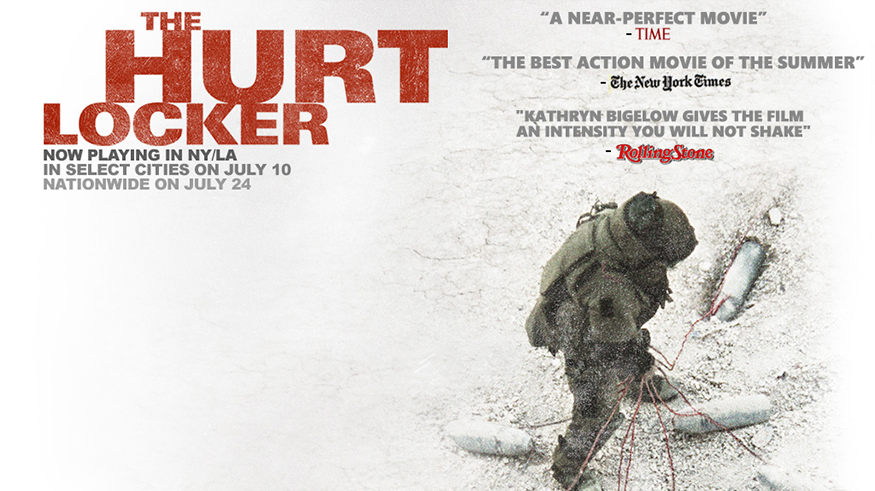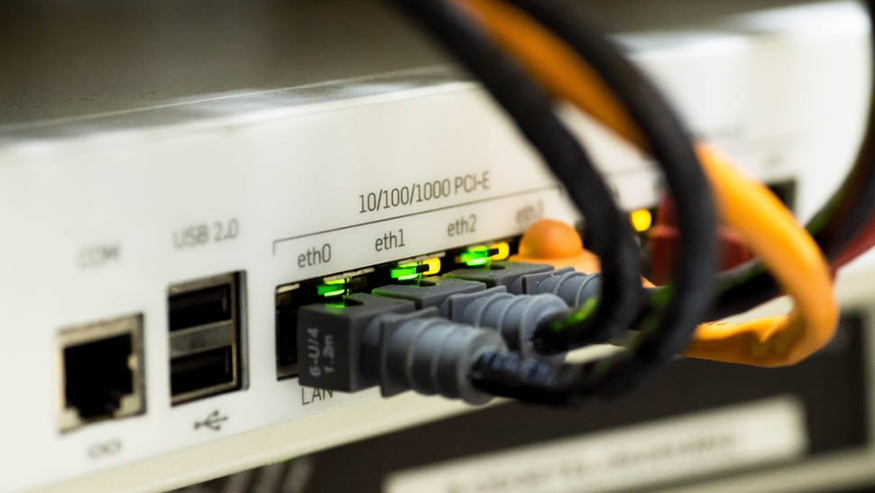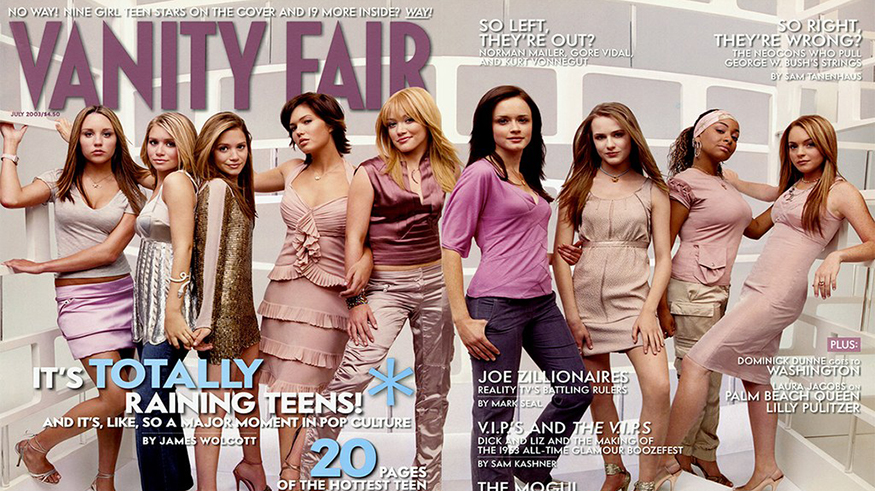TRACKING LEGISLATION
Each year, Media Coalition reviews hundreds of federal, state and local bills that could violate our members’ First Amendment rights. Media Coalition monitors these bills through a watch list, which includes summaries clarifying bill language and highlight potential issues of concern to our members.
LEGISLATIVE MEMOS
Media Coalition submits position statements addressing constitutional problems with pending bills. These memos are circulated to the members of the legislature and their staff.
Click each year to view the memos submitted in that year or click one of the other buttons below to change how the memos are sorted.
2020
Missouri Senate Bill 733
S.B. 733 would require internet service providers to block their customers’ access to depictions — and possibly descriptions — of nudity and sexual activity.
New Hampshire House Bill 1157
H.B. 1157 would require any “New Hampshire news media organization” to update, retract or correct any story published to the internet concerning a criminal proceeding brought against a specific person if the person was subsequently found not guilty, acquitted, or the charges were dismissed.
Tennessee House Bill 2294
H.B. 2294 would require internet service providers to block access to “pornographic” material for all users. A failure to do so shall be treated as a deceptive or unfair act or practice and is subject to penalties under the Tennessee Consumer Protection Act.
2019
Alabama House Bill 179
H.B. 179 is a right of publicity bill that would make the unauthorized use of a person’s likeness a misdemeanor crime. There is a very limited exception to the right for use of a person’s likeness in “news, public affairs, or sports broadcast,” but not for any other media or other type of content.
Alabama House Bill 180
H.B. 180 would deem to be profit from a crime any income generated from a movie, book, or any other media that describes or depicts the crime and includes any thoughts, feelings, opinions, or emotions of “an individual.”
Colorado House Bill 1334
H.B. 1334 would bar the posting or dissemination, through any electronic means, of an image of a minor committing suicide or attempting to do so.
Florida House Bill 855 and Senate Bill 1454
H.B. 855 and S.B. 1454 would make several changes to the definition of harmful to minors and to the definition of child pornography.
Hawaii House Bill 567
H.B. 567 is a mandatory filtering bill that would make it illegal to manufacture or distribute a product that makes any content accessible on the internet without “digital blocking capability.”
Louisiana House Bill 377
H.B. 377 would create a right of publicity for the life of the person plus 70 years postmortem. There is an exception for non-commercial uses unless the “identity is used to create an unauthorized performance.”
Maryland House Bills 691 and 1027
H.B. 691 and H.B. 1027 would expand the definition of child pornography to include computer-generated images that are indistinguishable from an actual minor under the age of 16 years old.
Maryland Senate Bill 736
S.B. 736 would expand the definition of child pornography to include computer-generated images that are indistinguishable from an actual minor under the age of 16 years old.
New York Assembly Bill 5605-A and Senate Bill 5959-A
A.B. 5605 and S.B. 5959 would create a right of publicity for the life of a person plus 40 years after their death. It would bar the use of a person’s name, portrait or picture, voice, or signature (collectively, their persona) without written consent in advertising or for the purposes of trade (or fundraising).
Oklahoma Senate Bill 864
S.B. 864 is a mandatory filtering bill that would bar anyone from manufacturing, distributing, or selling any product that makes content accessible on the internet from doing business in the state unless the product has active and operating “digital blocking capability” that blocks access to obscene material.
Pennsylvania House Bill 109
H.B. 109 would impose a 10 percent tax on the sale of any video game rated “Mature” or “Adults Only” by the video game industry rating system.
South Dakota House Bill 1154
H.B. 1154 is a mandatory filtering bill that would bar a distributor from manufacturing or distributing a product that makes content available on the internet unless it contains filtering software.
Wisconsin Assembly Bill 71
A.B. 71 would expand the definition of child pornography to include the language “depicting a child for the purpose of sexual stimulation or gratification of any person who may view the depiction” and lack serious value.
2018
Georgia House Bill 509
H.B. 509 bars the manufacturing, production or sale of any device that provides internet access unless it contains an active and operating filter that blocks or restricts access to obscene material, “revenge porn” and “websites known to facilitate prostitution and trafficking in persons for sexual servitude.”
Georgia House Resolution 353
H.R. 353 would create a study commission to consider HTPA legislation.
Hawaii Senate Bill 2478
S.B. 2478 is an HTPA bill that bars anyone from selling a device that provides internet access unless it contains an “active” filter that blocks access to sites containing “obscene” content that promotes or facilitates prostitution or “cyberharassment,” images of “cyberharassment” and non-obscene solicitations or offers for prostitution or assignations.
Hawaii Senate Bill 2838
S.B. 2838 is an HTPA bill that bars the manufacture, sale, offer for sale, lease or other distribution of any device that makes content accessible on the internet unless the device “contains” filtering software that blocks “pornographic” material, and the software must block “obscene” material if the manufacture, sale or distribution is to a minor.
Illinois Senate Bill 2560
S.B. 2560 would require a person who has published a “criminal record,” online or anywhere else, to remove the information within 30 days upon written request by the person who is the subject of the “criminal record.”
Indiana Senate Bill 394
S.B. 394 is an HTPA bill that bars a person from manufacturing, distributing or selling an internet-enabled device unless it contains active digital blocking software.
Iowa House Study Bill 523
H.S.B. 523 is an HTPA bill that bars the manufacture, sale, offer for sale, lease or other distribution of any device that makes content accessible on the internet unless the device has active and properly operating filtering software that blocks access to obscene for minors material, “revenge pornography” and any website that facilitates or promotes prostitution or human trafficking.
Kansas Senate Bill 363
S.B. 363 is an HTPA bill that bars an internet service provider from selling or leasing to a consumer any product or service that makes content accessible on the internet, unless that product or service contains an active and operating technology that blocks access to “obscene content.”
Maryland Senate Bill 585
S.B. 585 is an HTPA bill that bars manufacturers, distributors and sellers of devices capable of accessing content on the internet from doing business in the state unless each device has an active and operating digital blocking capability that blocks access to obscene material and websites that facilitate human trafficking and prostitution.
Mississippi Senate Bill 2315
Summary S.B. 2315 is an HTPA bill makes it unlawful to manufacture, sale, offer for sale, lease or distribution of any device that makes available content on the internet without installed and active filtering software to block access to “revenge pornography” and sites that are a “hub that facilitates prostitution” and sites that are “known […]
Missouri House Bill 2422
Summary H.B. 2422 is an HTPA bill. It bars the manufacture, sale, offer for sale, lease or other distribution of any device that makes content accessible on the internet unless the device has active and properly operating filtering software that blocks access to obscene for minors material, “revenge pornography” and any website that facilitates prostitution […]
New Jersey Assembly Bill 878
Summary A.B. 878 is an HTPA bill titled “Human Trafficking and Child Exploitation Prevention Act.” It makes it a violation of New Jersey’s consumer fraud act to manufacture, sell, lease or distribute any product that makes content on the internet accessible unless it “contains” digital blocking capability that makes any material that is obscene or […]
New Jersey Senate Bill 540
Summary S.B. 540 is an HTPA bill titled “Human Trafficking and Child Exploitation Prevention Act.” It makes it a violation of New Jersey’s consumer fraud act to manufacture, sell, lease or distribute any product that makes content on the internet accessible unless it “contains” digital blocking capability that makes any material that is obscene or […]
New Mexico Senate Bill 89
Summary S.B. 89 is an HTPA bill. It bars the manufacture, sale, offer for sale, lease or other distribution of any device that makes content accessible on the internet unless the device has active and properly operating filtering software that blocks access to obscene material, “revenge pornography” and websites that facilitates prostitution or human trafficking. […]
New York Assembly Bill 8155b and Senate Bill 5857b
A.B. 8155b and S.B. 5857b would amend New York’s existing right of privacy law to create a new right of publicity for the life of a person plus 40 years after their death. It would bar the use of a person’s name, portrait or picture, voice or signature — i.e., their persona — without their consent in advertising or for the purposes of trade. The new right is a property right that can be transferred and is inheritable. Name is defined to include a person’s nickname.
New York Assembly Bill 9011
Summary A.B. 9011 is an HTPA bill. It bars the sale or distribution of any computer or mobile device without filtering software that blocks access to child pornography, any “hub that facilitates prostitution” or website “known to facilitate human trafficking.” The manufacturer must also 1. make a reasonable and ongoing efforts to ensure it works […]
Pennsylvania House Bill 2705
Pennsylvania state Rep. Christopher B. Quinn, R-Media, released a memorandum on September 25, 2018 stating his intent “to introduce legislation which would assess a 10% sales tax on video games that contains violent material.”
Rhode Island Senate Bill 2028
Summary S.B. 2028 is an HTPA bill, that bars the manufacture, sale, offer for sale, lease or other distribution of any device that makes content accessible on the internet unless the device has active and properly operating filtering software that blocks access to obscene for minors material, “revenge pornography,” obscenity and websites that facilitate or […]
Rhode Island Senate Bill 2584
Rhode Island Senate Bill 2584 is an HTPA bill, which requires Internet Service Providers to provide filtering software that renders “sexual content and/or patently offensive material” inaccessible with any service or product it sells or leases.
South Carolina House Bill 3003
Summary H.B. 3003 (HTPA) requires that all devices that allow access to the internet must come with an “active and operating digital blocking capability” that make obscene material “inaccessible.” The “digital blocking capability” must also make “inaccessible” child pornography (not defined), revenge pornography (SC doesn’t have an RP law), hubs that facilitate prostitution (undefined) and […]
Tennessee House Bill 2685
Summary H.B. 2685 is an HTPA bill. It bars any business that makes a first sale of a device that allows the user to view or download content from the internet from selling or renting such a device unless it has operating filtering software that blocks access to obscene material, revenge pornography and any website […]
Tennessee Senate Bill 2280
Summary S.B. 2280 is an HTPA bill. It bars any business that makes a first sale of a device that allows the user to view or download content from the internet from selling or renting such a device unless it has operating filtering software that blocks access to obscene material, revenge pornography and any website […]
West Virginia Senate Bill 460
Summary S.B. 460 is an HTPA bill. It bars any retailer from selling or leasing any device that makes content accessible on the internet unless it has operating filtering software that blocks access to obscene material, revenge pornography and any website known to facilitate prostitution. The blocked material is defined by reference to existing state […]
Wyoming House Bill 127
Summary H.B. 127 is an HTPA bill. It bars any person from manufacturing, distributing or selling any device in Wyoming unless it has working filters to block access to websites that contain obscene material or that facilitate prostitution. The seller or distributor must provide regular and ongoing updates to the filtering software to make sure […]
2017
Alabama House Bill 428
The bill would make it a crime for anyone to sell any device that allows access to the internet unless it contains an active filter that blocks or restricts access to “obscene material,” which is defined to include “sexual cyber harassment” and any offers or ads for prostitution or human trafficking.
Florida House Bill 337 and Senate Bill 870
The legislation would make it illegal would make it illegal for a business or individual to manufacture, produce or sell any device that provides internet access unless it contains an active and operating filter that blocks or restricts access to: material harmful to minors, obscene material, “revenge porn,” “lewdness” (indecent acts, i.e., ads for sexual encounters or hook ups) and human trafficking (only defined by the act, not what speech about it is).
Georgia House Bill 509
H.B. 509 bars the manufacturing, production or sale of any device that provides internet access unless it contains an active and operating filter that blocks or restricts access to obscene material, “revenge porn” and “websites known to facilitate prostitution and trafficking in persons for sexual servitude.”
Georgia House Resolution 353
H.R. 353 would create a study commission to consider HTPA legislation.
Indiana House Bill 1533
The bill bars the manufacture or distribution of devices that provide access to the internet without active software that blocks material harmful to minors or obscene as designated by the attorney general.
Louisiana House Bill 172
The bill bars any retailer in Louisiana from selling or leasing any device that provides internet access unless it includes an “active and operating digital blocking” capability that renders obscene material inaccessible. It also bars any retailer outside Louisiana from selling or leasing such a device to anyone in Louisiana.
Louisiana House Bill 415
Summary Louisiana HB 415 would create a right of publicity for the life of a person plus 50 years. The right applies to a person’s “identity,” which is defined as their name, voice, signature, photograph, image, likeness, or any distinct appearance, gesture, or mannerism. The bill as introduced included a narrow exemption for non-commercial […]
New Jersey Assembly Bill 4503 and Senate Bill 2928
The legislation would make it a violation of New Jersey’s consumer fraud act to manufacture, or distribute any product that makes content on the internet accessible unless it contains digital blocking capability that that blocks any obscene material, defined as obscenity or harmful to minors, inaccessible. New Jersey’s harmful to minors’ law is unconstitutional.
New York Assembly Bill 8155 and Senate Bill 5857
New York A.B. 8155 and S.B. 5857 would amend the state’s existing right of publicity law to extend the right to individuals post mortem and broaden the right beyond a person’s name, portrait, picture or voice.
North Dakota House Bill 1185
The bill bars any business or individual that manufactures, produces or sells any device that provides internet access unless it makes inaccessible obscene material and to any “intimate image” as defined in the North Dakota harmful to minors law. However, the law does not define “intimate image.”
Oklahoma House Bill 1472
The bill requires blocking of obscene material. It was amended to make filtering for obscenity opt in. Must still block “revenge porn” and sites that facilitate prostitution and human trafficking.
South Carolina House Bill 3003
The bill requires that all devices that allow access to the internet must come with an “active and operating digital blocking capability” that make obscene material “inaccessible.”
Texas House Bill 2266
Texas HB 2266 would bar a business from selling or leasing to a consumer any product that makes content accessible on the internet is barred from doing business in Texas unless the product contains an “active and operating digital blocking capability” that blocks access to obscene material.
Utah Senate Bill 185
S.B.185 would provide a cause of action to sue for a person to sue anyone who produces or distributes material harmful to minors if, at the time the material was produced the person was a minor; and the material was the proximate cause for the person being harmed physically or psychologically, or by emotional or medical illnesses.
West Virginia Senate Bill 447
The bill bars any retailer from selling any devices that allow access to the internet without active and operating digital blocking capability” that blocks obscene material. [West Virginia does not have a harmful to minors law.]
Wyoming House Bill 245
House Bill 245 would deem anyone who manufactures, sells or distributes an internet enabled device in this state that does not contain blocking software to violate the existing law for distributing obscenity, which is subject to up to one year in prison.
2016
Alabama House Bill 167 and Senate Bill 222
Alabama House Bill 167 and Senate Bill 222 would define a business as a “sexually oriented business” if it has “any business offering for sale, rent or the exhibit of items or services intended to provide sexual stimulation or sexual gratification to the customer.”
California Assembly Bill 1671
California AB 1671, would make it a crime to disclose or distribute the contents of a “confidential conversation” if it was originally heard or recorded using an electronic amplifying or recording device. It also makes it illegal to aid, abet or employ anyone who discloses or distributes the content of such a conversation.
Indiana Senate Bill 14
Indiana S.B. 14 would amend the existing state statute criminalizing sexually explicit depictions of minors. The existing law applies to descriptions of minors, drawings of minors and depictions of adults who appear to be minors.
Iowa Senate File 2039
Iowa S.F. 2039 would apply the state’s “obscene for minors” law to “electronic communication devices.”
Maryland House Bill 30
Maryland H.B. 30 would bar the display of material if its cover or content is “harmful to minors.”
Nebraska Legislative Bill 892
Nebraska L.B. 892 would criminalize electronic communication with another person using indecent, lewd or lascivious language or to suggest a lewd or lascivious act with the intent to annoy, offend, harass or terrify.
New Hampshire Senate Bill 465
New Hampshire S.B. 465 would criminalize the dissemination of a nude or sexually explicit without consent of the person depicted if the picture was known or understood to remain private.
Rhode Island House Bill 7537 and Senate Bill 2510
Rhode Island H.B. 7537 would bar the dissemination of a nude or sexually explicit image of another person without consent, under circumstances in which a reasonable person would know or understand the image was supposed to remain private.
South Dakota House Bill 1243
South Dakota H.B. 1243 would criminalize the distribution of images of a person without clothing, under or through the clothing of the person or a person depicted in a sexual manner, without the consent of the person depicted.
2015
Alabama House Bill 8
Alabama H.B. 8 would require any website to remove arrest photos within 30 days of a request if the person was not convicted.
Alabama House Bill 39
Alabama H.B. 39 would impose a 40 percent tax on “harmful to minors” material, with the exception of movies rated “R” or “NC-17.” It would also impose a 10 percent tax on sexually oriented material.
Alabama Senate Bill 197
Alabama S.B. 197 would create a right of publicity in a person’s “indicia of identity.” There is an exception for expressive works, but for expressive works that are “a replica as to constitute a copy,” the exception is contingent on the use being protected by the U.S. and Alabama Constitutions.
Arkansas Senate Bill 79
Arkansas S.B. 79 would create a right of publicity in an individual’s name, voice, signature, image or likeness. Artistic use is exempted from the right, but only if the use is protected by the First Amendment.
California Assembly Bill 538
California A.B. 538 would require anyone that enters into a contract for “the sale of the story of a crime for which the offender was convicted” with a person convicted of specified crimes to report it to the Office of Survivor Rights and Services.
California Senate Bill 676
California S.B. 676 would criminalize the publication of a name or other personal information “associated” with a nude photo distributed without consent.
Connecticut House Bill 6921
Connecticut H.B. 6921 would make it a crime to disseminate a nude or sexually explicit photo without the consent of the person depicted and if the person knew that the person depicted understood the picture would remain private.
Delaware Senate Bill 68
Delaware S.B. 68 would bar the advertising to a minor of certain First Amendment-protected material. Websites directed to minors would be barred from advertising the material altogether.
Hawaii House Bill 529
Hawaii H.B. 529 would require online publishers to remove an arrest booking photo within 30 days upon written request by the person in the image if that person was not convicted.
Indiana Senate Bill 313
Indiana S.B. 313 would amend the existing state statute that criminalizes the possession or dissemination of any material that contains depictions of minors engaged in “sexual conduct.” The existing law is unconstitutionally overbroad.
Louisiana House Bill 153
Louisiana H.B. 153 would require any website in the state who publishes “harmful to minors” material to make every visitor “electronically acknowledge and attest” to being 18 years old before accessing the material.
Maine Legislative Document 679
Maine L.D. 679 would make it a crime to distribute a nude or sexually explicit image of an identifiable person if the person knows or should have known that the person depicted did not consent to its distribution.
Maine Legislative Document 1114
Maine L.D. 1114 would make it a crime to electronically transmit “sexually explicit material” to a minor under 14 years old.
Maryland House Bill 744
Maryland H.B. 744 would require websites to remove arrest photos for charges that can be expunged under state law.
Massachusetts House Bill 1399
Massachusetts H.B. 1399 would require anyone who enters into a contract with anyone charged or convicted of a crime to report it to the state Attorney General and post a bond equal to the value of the contract.
Massachusetts House Bill 1513
Massachusetts H.B. 1513 would make it a crime to disseminate a nude or sexually explicit image of another person if one knows or should have known the person depicted did not consent.
Michigan Senate Bill 508
Michigan S.B. 508 would make it a crime to disseminate a nude or sexually explicit image of another person without consent and if the person depicted had a reasonable expectation of privacy.
New York Assembly Bill 7904 and Senate Bill 5650
New York A.B. 7904 and S.B. 5650 would create a right of publicity in a person’s name, voice, signature, image or likeness for any person deceased within the last 70 years who was domiciled at New York at the time of death. There is an exception for expressive use, but there is a “caveat” to this exception.
North Dakota Senate Bill 2357
North Dakota S.B. 2357 would criminalize the nonconsensual distribution of nude or sexually explicit images if the person depicted had a reasonable expectation of privacy and he or she suffered emotional distress or harm as a result.
Rhode Island House Bill 5770 and Senate Bills 625 and 630
Rhode Island H.B. 5770 and S.B. 625 and 630 would bar the nonconsensual distribution of nude or sexually explicit images if the person depicted had a reasonable expectation of privacy.
South Carolina Senate Bill 255
South Carolina S.B. 255 would require any website to remove arrest and booking records within 30 days of written request if the person was not convicted.
Texas House Bills 101 and 603
Texas H.B. 101 and H.B. 603 would criminalize the distribution of nude images if one knows or should have known that the person depicted did not consent to the distribution.
Texas Senate Bill 1135
Texas S.B. 1135 would bar the distribution of nude or sexually explicit images without the consent of the person depicted, if the person depicted is identifiable (even if the identifying information was added by a third party) and if the distribution caused harm to the person depicted.
Vermont House Bill 105
Vermont H.B. 105 would make it a crime to disseminate a nude or sexually explicit image of another person if one knows or should have known that the person depicted did not consent to its dissemination.
West Virginia Senate Bill 128
West Virginia S.B. 128 would bar the dissemination and display to minors of “harmful to minors” material, but the bill does not define “harmful to minors.”
2014
Kansas House Bill 2496
Kansas H.B. 2496 would change the scienter requirement from “knowingly” to “recklessly” with regards to displaying and distributing materials that are considered “harmful to minors.” It is a companion bill to S.B. 401.
Kansas Senate Bill 401
Kansas S.B. 401 would change the scienter requirement from “knowingly” to “recklessly” with regards to displaying and distributing materials that are considered “harmful to minors.” It is a companion bill to H.B. 2496.
Louisiana House Bill 258
Louisiana H.B. 258 would require any website that publishes material “harmful to minors” on the Internet to require an “age verification system” to access the material.
Massachusetts Senate Bill 168
Massachusetts S.B. 168 would create a commission to study video games that allow a player to simulate severe battery or killing.
Minnesota House Bill 1940
Minnesota H.B. 1940 would require any publisher to remove an arrest photo if the person was not convicted of the crime. If the person was convicted, the bill would require publishers to limit the information associated with the photo. It is a companion bill to S.B. 1863.
Minnesota Senate Bill 1863
Minnesota S.B. 1863 would require any publisher to remove an arrest photo if the person was not convicted of the crime. If the person was convicted, the bill would require publishers to limit the information associated with the photo. It is a companion bill to H.B. 1940.
Mississippi House Bill 1
Mississippi H.B. 1 would bar the electronic dissemination to a minor of “sexually oriented material” that goes beyond the Miller/Ginsberg test.
Missouri House Bill 1665
Missouri H.B. 1665 would require any website to remove an arrest photo if the person was not convicted of the crime.
New Hampshire House Bill 110
New Hampshire H.B. 110 would require anyone who witnesses an instance of illegal animal cruelty to livestock or poultry to turn over visual evidence to law enforcement authorities within 24 hours.
New Hampshire House Bill 1144
New Hampshire H.B. 1144 would require any website to remove criminal record information and the arrest photo if the person was not convicted of the crime.
North Carolina Senate Bill 744
A section in North Carolina S.B. 744 would require publishers and websites to remove criminal record information or publish a retraction upon request if the person was not convicted of the crime.
Ohio House Bill 74
Ohio H.B. 74 would criminalize speech that causes emotional distress to another person or a person’s family member.
Pennsylvania House Bill 2533 and Senate Bill 508
Pennsylvania H.B. 2533 and S.B. 508 would allow a victim of a personal injury crime to bring a civil action against any offender to obtain injunctive relief for “conduct which perpetuates the continuing effect of the crime on the victim.”
Rhode Island House Bill 7409
Rhode Island H.B. 7409 tasks the Public Utility Commission to create regulations to bar the display of material deemed “indecent.”
Rhode Island House Bill 7766
Rhode Island H.B. 7766 would make it a felony to electronically disseminate sexual content to a person known or believed to be a minor beyond what is allowed under the Miller/Ginsberg test. It is a companion bill to S.B. 2610.
Rhode Island Senate Bill 2610
Rhode Island S.B. 2610 would make it a felony to electronically disseminate sexual content to a person known or believed to be a minor beyond what is allowed under the Miller/Ginsberg test. It is a companion bill to H.B. 7766.
West Virginia House Bill 2119
West Virginia H.B. 2119 would impose a $1 tax on the sale or rental of any material deemed obscene by the tax commissioner.
Wisconsin Assembly Bill 462 and Senate Bill 367
Wisconsin A.B. 462 and S.B. 367 would make it a crime to disseminate a nude or partially nude image of an adult without the consent of the person depicted.
Wisconsin Senate Bill 184
Wisconsin S.B. 184 would bar the electronic posting of messages where other persons can view them using lewd or profane language or suggesting a lewd or lascivious act with the intent to annoy or offend.
2013
Connecticut Senate Bill 328
Connecticut S.B. 328 would require owners of public establishments or arcades to bar minors from using certain video games with violent imagery. The bill would also create a task force to study the effects of video games with violent content on youth behavior.
Kansas House Bill 2165
Kansas H.B. 2165 would change the scienter requirement from “knowingly” to “recklessly” with regards to displaying and distributing materials that are considered harmful to minors.”
Massachusetts Senate Bill 168
Massachusetts S.B. 168 would create a commission to study video games that allow a player to simulate severe battery or killing.
New Hampshire House Bill 110
New Hampshire H.B. 110 would require anyone who witnesses an instance of illegal animal cruelty to livestock or poultry to turn over visual evidence to law enforcement authorities within 24 hours.
New Jersey Senate Bill 2715
New Jersey S.B. 2715 would require the Department of Education to make available information on how parents’ can limit children’s exposure to electronic media with violent images or themes with specific research and statistics about media effects.
Ohio House Bill 74
Ohio H.B. 74 would criminalize speech that causes emotional distress to another person or a person’s family member.
Rhode Island House Bill 5570
Rhode Island H. 5570 would criminalize the electronic dissemination to a minor of a depiction of nudity or sexually explicit conduct. It would also bar the dissemination of a nude photo without the consent of all the people depicted in the photo. It is a companion bill to S.B. 550.
Rhode Island Senate Bill 550
Rhode Island S.B 550 would criminalize the electronic dissemination to a minor of a depiction of nudity or sexually explicit conduct. It would also bar the dissemination of a nude photo without the consent of all the people depicted in the photo. It is a companion bill to H.B. 5570.
Texas Senate Bill 1512
Texas S.B. 1512 would categorize “sensitive crime scene” photos as not part of public disclosure under Texas’s Public Information Act and would limit access and distribution.
West Virginia Senate Bill 640
West Virginia S.B. 640 would bar the dissemination or display of any depictions of nudity or sexual conduct to minors.
Wisconsin Assembly Bill 462 and Senate Bill 367
Wisconsin A.B. 462 and S.B. 367 would make it a crime to disseminate a nude or partially nude image of an adult without the consent of the person depicted.
Wisconsin Senate Bill 184
Wisconsin S.B. 184 would bar the electronic posting of messages where other persons can view them using lewd or profane language or suggesting a lewd or lascivious act with the intent to annoy or offend.
2012
Arizona House Bill 2549
Arizona H.B. 2549 would make it a misdemeanor to communicate by any electronic or digital device using any obscene, lewd, or profane language or suggest any lewd or lascivious act for any person, if done with the intent to annoy, offend, terrify, intimidate, threaten, or harass.
Florida Senate Bill 1618
Florida S.B. 1618 would revise the definition of the term “child pornography” to include visual depiction that has been “created, adapted, or modified to appear” that a minor engaged in sexual conduct.
Iowa House Study Bill 525
Iowa H.S.B. 525 would apply the state’s “harmful to minors” law to the Internet.
Massachusetts Senate Bill 636
Massachusetts S.B. 636 would require video game and software publishers and television programmers to post labels on content with violent themes. It also requires parents to bar minors from accessing such content.
Mississippi Senate Bill 2360
Mississippi S.B. 2360 would criminalize the knowing and intentional electronic dissemination of descriptions or depictions of simulated or actual sexually explicit nudity or conduct to a minor. The bill criminalizes content beyond the Miller/Ginsberg test.
Nebraska Legislative Bill 948
Nebraska L.B. 948 would criminalize the act of contacting another person using a phone, or any other communication device and multimedia storage device with language with an intent to “annoy,””offend,””harrass,” or “terrify.”
New Hampshire Senate Bill 175
New Hampshire S.B. 175 would create a right of publicity, explicitly giving individuals the right to control the use of his or her identity for 70 years in addition to their lifetime. An amendment to bill removed a section that allowed exceptions for works of or in the media.
New York Assembly Bill 290
New York A.B. 290 would impose a $2 surcharge on each magazine, video, DVD, or website registered in New York that contains nude images.
Ohio House Bill 414
Ohio H.B. 414 would broaden existing law to criminalize any written communication that causes “mental or emotional” distress to a person or to a person’s family.
Oklahoma House Bill 2696
Oklahoma H.B. 2696 would impose a 1% excise tax on violent video games. This tax would be added on top of already existing state or local taxes imposed on general merchandise.
Rhode Island Senate Bill 2647
Rhode Island S.B. 2647 would make it a crime to electronically disseminate indecent materials to a person known or believed to be a minor beyond what is allowed under the Miller/Ginsberg test. It would also bar “annoying” communication that serves no legitimate purpose and causes emotional distress to a person. And it would criminalize the distribution of nude images without the consent of the person depicted.
Tennessee Senate Bill 2860 and House Bill 3081
Tennessee S.B. 2860 and H.B. 3081 would impose a 25% tax on any material “harmful to minors”; any material sold or rented at a store with an “adults only” section; and any movies with “sexually explicit” content, with the exception of movies rated “R” or “NC-17″ by the Motion Picture Association of America.
2011
Alaska House Bill 127
Alaska H.B. 127 would narrow the state’s “harmful to minors” law as applied to the internet to limit it to distribution to a minor under 16 years old and if the adult is reckless about the minor’s age. It is companion to S.B. 72.
Alaska Senate Bill 72
Alaska S.B. 72 would narrow the state’s “harmful to minors” law as applied to the internet to limit it to distribution to a minor under 16 years old and if the adult is reckless about the minor’s age. It is companion to H.B. 127.
Arkansas Senate Bills 668 and 741
Arkansas S.B. 668 and 741 would apply the state’s “harmful to minors” law to the Internet.
Florida House Bill 75
Florida H.B. 75 would bar the distribution or transmission by a minor of any image that contains nudity and is “harmful to minors” by electronic means, including the internet.
Hawaii House Bill 548
Hawaii H.B. 548 would impose civil liability on any author or publisher of a visitor guide or website that describes activities or attractions on privately or publicly owned land, if a person suffers an injury or dies on such property. It is companion to S.B. 1207.
Hawaii House Bill 1007
Hawaii H.B. 1007 would criminalize the dissemination of “harmful to minors” material to an adult, if the adult represented him or herself to be a minor. The state’s existing “harmful to minors” law does not follow the Miller/Ginsberg test. It is companion to S.B. 1234.
Hawaii Senate Bill 1207
Hawaii S.B. 1207 would impose civil liability on any author or publisher of a visitor guide or website that describes activities or attractions on privately or publicly owned land, if a person suffers an injury or dies on such property. It is companion to H.B. 548.
Hawaii Senate Bill 1234
Hawaii S.B. 1234 would criminalize the dissemination of “harmful to minors” material to an adult, if the adult represented him or herself to be a minor. The state’s existing “harmful to minors” law does not follow the Miller/Ginsberg test. It is companion to H.B. 1007.
Iowa Senate File 410
Iowa S.F. 410 would require public libraries to bar minors from renting material that has been rated R, NC-17 or a comparable rating by the MPAA and the ESRB.
Massachusetts Senate Bill 636
Massachusetts S.B. 636 would require video game and software publishers and television programmers to post labels on content with violent themes. It also requires parents to bar minors from accessing such content.
Mississippi House Bill 195
Mississippi H.B. 195 would criminalize the intentional or knowing dissemination to anyone under 16 years old of material “harmful to minors.” Nothing in the bill or existing state law defines “harmful to minors.”
New Hampshire Senate Bill 175
New Hampshire S.B. 175 would create a right of publicity, explicitly giving individuals the right to control the use of his or her identity for 70 years in addition to their lifetime. An amendment to bill removed a section that allowed exceptions for works of or in the media.
New York Assembly Bill 290
New York A.B. 290 would impose a $2 surcharge on each magazine, video, DVD, or website registered in New York that contains nude images.
New York Senate Bill 5226
New York S.B. 5226 would criminalize the dissemination of “harmful to minors” material to a minor online. It is identical to a New York law that was struck down in the 1997 Media Coalition case American Library Association v. Pataki.
2010
Alaska House Bill 298
Alaska H.B. 298 would bar any distribution of “indecent material” to a minor or someone the person believes is a minor. The existing state law’s definition of “indecent material” goes beyond the Miller/Ginsberg test. It is a companion bill to S.B. 222.
Alaska Senate Bill 222
Alaska S.B. 222 would bar any distribution of “indecent material” to a minor or someone the person believes is a minor. The existing state law’s definition of “indecent material” goes beyond the Miller/Ginsberg test. It is a companion bill to H.B. 298.
Baltimore County Council Bill 50-10
Baltimore County Council Bill 50-10 would define a business as an “adult business” if 15 percent of stock and trade, floor space or revenue is derived from material that describes or depicts sexual activities.
Delaware House Bill 346
Delaware H.B. 346 would criminalize viewing or possessing visual depictions of animal cruelty, if the act of cruelty is illegal under Delaware or federal law and if it lacks serious scientific, journalistic or political value.
Louisiana House Bill 1259
Louisiana H.B. 1259 would make it a crime to communicate with another person with the intent to coerce, abuse, intimidate, harass, frighten, embarrass or cause emotional distress.
Massachusetts Senate Bill 997
Massachusetts S.B. 997 would apply the state’s “harmful to minors” law to apply to the internet.
Rhode Island Senate Bill 2156
Rhode Island S.B. 2156 would make it illegal to sell or rent a video game rated M to anyone under 17 years old or a video game rated AO to anyone under 18. It would also make it illegal to sell or rent a “sexually explicit” or “violent” video game to a minor.
2009
Mississippi House Bill 57
Mississippi H.B. 57 would criminalize the sale of sexual content beyond the Miller/Ginsberg test to minors, and would make the crime a “sexual offense” on the part of the retailer. The crime would require registration as a sex offender and a 10-year mandatory minimum prison sentence.
New Jersey Assembly Bill 3757
New Jersey A.B. 3757 would bar the transmission of “sexually-offensive communication” via a “social networking site” to or about a person who is reasonably believed to be either under 13 or between 13-16 but four years younger than the speaker. The bill would also require social networking sites to revoke access to speakers who make sexually offensive statements and/or set up an elaborate process to block access to specific users.
Tennessee Senate Bill 1236
Tennessee S.B. 1236 would enact a 25% sales tax on advertising in certain periodicals for sexually-oriented material and adult materials that are restricted for anyone less than 18.
Utah House Bill 353
Utah H.B. 353 would allow video game retailers to be sued if they advertise that they will adhere to the private ESRB rating system but fail to do so.
Washington House Bill 2103
Washington H.B. 2103 would impose a sales tax on “adult entertainment material” and define “adult” material as any material that is primarily interested in sex, using sex acts that would merit an “X” rating from the Motion Picture Association of America as a benchmark.
2008
Alabama House Bill 153
Alabama H.B. 153 would impose a 30% tax on material that is legally obscene for adults and “adult novelty items.” “Adult novelty items” is defined to include “material that is sexually oriented in nature.”
Arizona House Bill 2660
Arizona H.B. 2660 would create a civil cause of action against any distributor or producer of “dangerous” material that is found to produce or incite a felony.
Colorado Senate Bill 125
Colorado S.B. 125 would create a “harmful for minors” law that would bar both dissemination and access for minors to material that is illegal for minors under Ginsberg v. New York. The bill would restrict the First Amendment rights of adults to access constitutionally protected material.
Connecticut Raised Bill 363
Connecticut R.B. 363 would bar the electronic dissemination of “harmful to minors” material to a minor.
Indiana House Bill 1042
Indiana H.B. 1042 would bar any business or individual from selling any material that contains “sexually explicit” content unless they have registered with the Secretary of State.
Massachusetts House Bill 1423
Massachusetts H.B. 1423 would add a fourth prong to the existing three-prong test to determine what material is “harmful to minors” and may be banned for minors. The fourth prong would apply to content that depicted violence that is patently offensive to “prevailing standards in the adult community, so as to appeal predominantly to the morbid interest in violence of minors.”
New York Assembly Bill 11717
New York A.B. 11717 would bar any retailer from selling or renting any video game that has been rated if its rating is not prominently displayed on its cover or jacket.
South Carolina Proviso 89
South Carolina Proviso 89 would impose a 20% tax on printed matter that contains “frontal nudity.”

